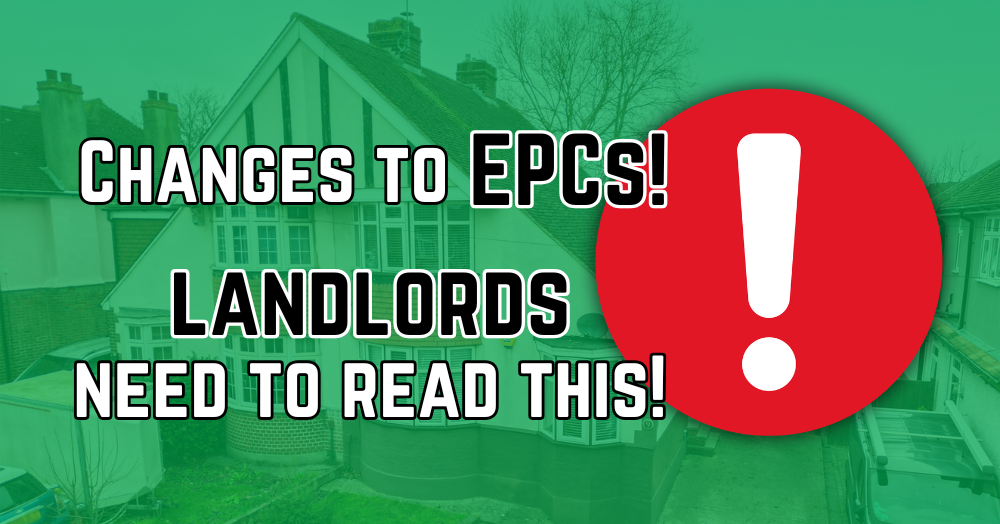The Government has introduced plans to shake up how Energy Performance Certificates (EPCs) are assessed, aiming to modernise and improve their usefulness. These changes may impact landlords significantly, with shorter validity periods, new metrics, and increased fines. Here’s a breakdown of what’s happening and what it means for you. 💡
❓ Why Are Changes Being Proposed?
EPCs were introduced in 2008 to rate a property’s energy efficiency and provide improvement suggestions. Landlords and sellers must present them when marketing properties.
However, critics have argued that the current system is outdated and inconsistent. The proposed changes aim to make EPCs more accurate, relevant, and beneficial for both property owners and tenants.
📋 Key Proposed Changes
1️⃣ New Metrics for Assessing Energy Efficiency
The current two headline metrics—Energy Efficiency Rating (EER) and Energy Impact Rating (EIR)—may be replaced with a broader range of measures:
- 💰 Energy Cost: Estimated running costs for energy use.
- 🛠️ Fabric Performance: Evaluates insulation and thermal efficiency (walls, roof, windows).
- 🔥 Heating System: Rates heating efficiency and environmental impact.
- 📡 Smart Readiness: Assesses the ability to adopt smart technologies, such as smart meters.
- These updates will offer clearer insights into a property’s energy performance and areas for improvement.
2️⃣ Shorter EPC Validity Periods
EPCs currently last 10 years, but proposed changes may reduce this to 2, 5, or 7 years. This means:
- More frequent assessments.
- Landlords needing valid EPCs throughout tenancies could face mid-tenancy renewals.
3️⃣ Immediate Action on Expired EPCs
Once an EPC expires, a new one will be required immediately, even if the property isn’t being marketed.
4️⃣ Heritage Properties to Require EPCs
Listed buildings and those in conservation areas, often exempt from EPC requirements, may now require them. Exemptions could still apply if upgrades would alter the property’s character.
5️⃣ Higher Fines for Non-Compliance
Fines for failing to provide a valid EPC could rise from £200 to £325–£400, reflecting inflation and stricter enforcement.
🏡 What Does This Mean for You?
For Landlords
These changes could mean higher costs and stricter compliance:
- 🏚️ Older or heritage properties may struggle to meet new standards.
- 💷 More frequent renewals and required upgrades could strain budgets.
- It’s also worth remembering that these changes are in addition to the amendments we expect to The Domestic Minimum Energy Efficiency Standard (MEES) Regulations. Currently, MEES require properties to meet a Band E or above, but this is expected to change to a C in the future!
For Homeowners
New metrics will provide better insights to help reduce energy bills, but the cost of frequent assessments and potential upgrades could be a concern.
For Tenants
Energy-efficient homes mean lower energy bills and more comfortable living spaces. However, landlords might pass on the costs of compliance, potentially leading to higher rents.
💡How Can Landlords Prepare?
- 🔍 Review Your Portfolio: Identify properties that may need significant upgrades, especially older or heritage buildings.
- 📅 Plan Ahead: Budget for energy efficiency improvements like better insulation, smart tech, or low-carbon heating systems.
- 📖 Stay Informed: Keep up with updates on these changes and consult professionals to ensure compliance.
✅ Bottom Line
The proposed EPC reforms aim to modernise energy efficiency standards, benefiting tenants and the environment. However, for landlords, they represent new challenges in terms of cost and compliance. Being proactive and informed is key to navigating these changes successfully! 🌍
❓ Have Questions?
If you have any queries, please do not hesitate to reach out. We are here and ready to help! 😊
📞 01474 321957
📧 lettings@mandmprop.co.uk

